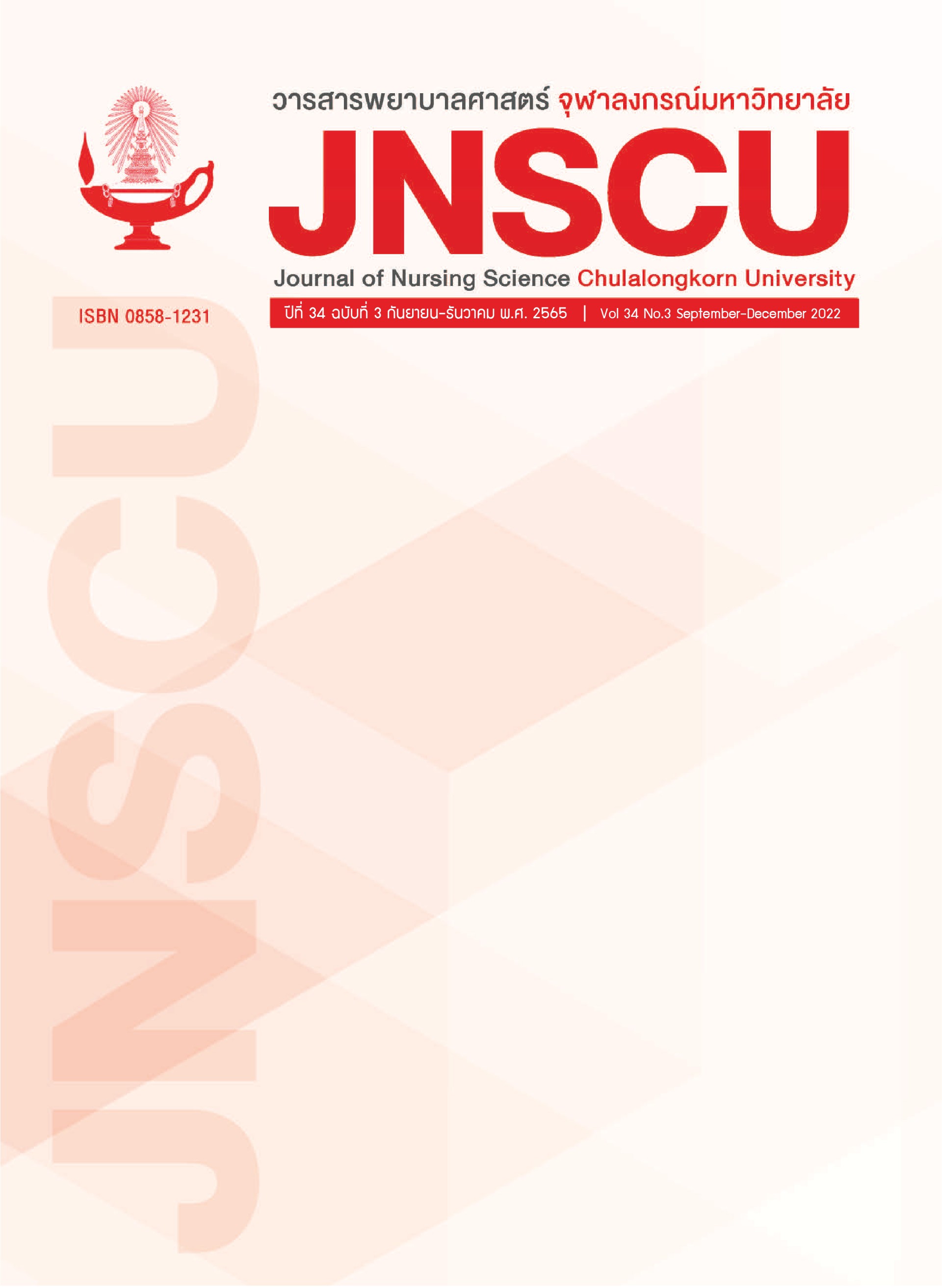ผลของโปรแกรมความรอบรู้ด้านสุขภาพต่อพฤติกรรมป้องกันสารเคมีกำจัดศัตรูพืชและระดับเอนไซม์โคลีนเอสเตอเรสในเลือดของเกษตรกร
คำสำคัญ:
ความรอบรู้ด้านสุขภาพ, สารเคมีกำจัดศัตรูพืช, เกษตรกร, การวิจัยผสานวิธีบทคัดย่อ
วัตถุประสงค์: เพื่อศึกษาผลของโปรแกรมความรอบรู้ด้านสุขภาพต่อพฤติกรรมป้องกันสารเคมีกำจัดศัตรูพืชและระดับเอนไซม์โคลีนเอสเตอเรสในเลือดของเกษตรกร
รูปแบบการวิจัย: การวิจัยแบบผสานวิธี
วิธีดำเนินการวิจัย: การวิจัยเชิงปริมาณกึ่งทดลอง จำนวน 30 คน และผู้ให้ข้อมูลเชิงคุณภาพ คือ เกษตรกรที่เข้าร่วมกิจกรรมโปรแกรม จำนวน 17 คน เครื่องมือการวิจัย ได้แก่ โปรแกรมความรอบรู้ด้านสุขภาพ แบบสอบถามความรอบรู้ด้านสุขภาพ และชุดตรวจเลือดโคลีนเอสเตอเรส มีค่าความเชื่อมั่นระหว่าง 0.82-0.96 การวิเคราะห์ข้อมูล ได้แก่ ค่าร้อยละ ค่าเฉลี่ย ค่าเบี่ยงเบนมาตรฐาน Pair t-test และการวิเคราะห์เชิงเนื้อหา
ผลการศึกษา: เกษตรกรมีคะแนนเฉลี่ยความรอบรู้ด้านสุขภาพ พฤติกรรมป้องกันสารเคมีกำจัดศัตรูพืช และค่าเฉลี่ยโคลีนเอสเตอเรสในเลือดดีกว่าก่อนการทดลอง อย่างมีนัยสำคัญทางสถิติ ที่ระดับ 0.01 โดยพบว่า เกษตรกรมีความรู้ สามารถค้นหา สอบถามผู้รู้ผ่านระบบออนไลน์ จัดการปัญหาและอุปสรรค เข้าถึงข้อมูลและบริการสุขภาพ และมีพฤติกรรมป้องกันสารเคมีกำจัดศัตรูพืชที่ถูกต้องและเหมาะสม ส่งผลให้ระดับเอนไซม์โคลีนเอสเตอเรสในเลือดลดลง
สรุป: ผลของโปรแกรมความรอบรู้ด้านสุขภาพลดระดับเอนไซม์โคลีนเอสเตอเรสในเลือด ดังนั้น ควรนำโปรแกรมไปประยุกต์ใช้กับเกษตรกรเพื่อลดหรือชะลอการเกิดภาวะแทรกซ้อน
ดาวน์โหลด
เผยแพร่แล้ว
ฉบับ
ประเภทบทความ
สัญญาอนุญาต

อนุญาตภายใต้เงื่อนไข Creative Commons Attribution-NonCommercial-NoDerivatives 4.0 International License.
##default.contextSettings.thaijo.licenseTerms##


